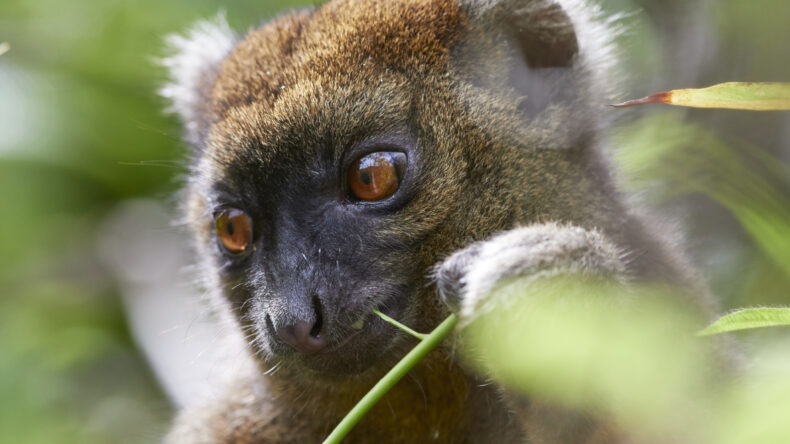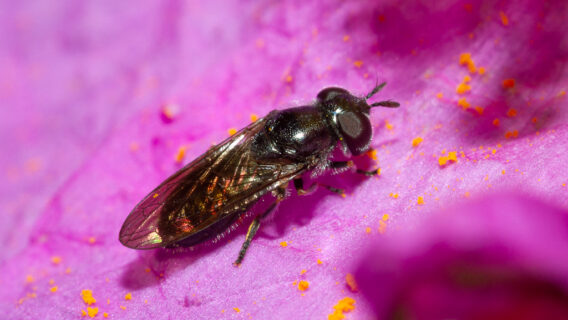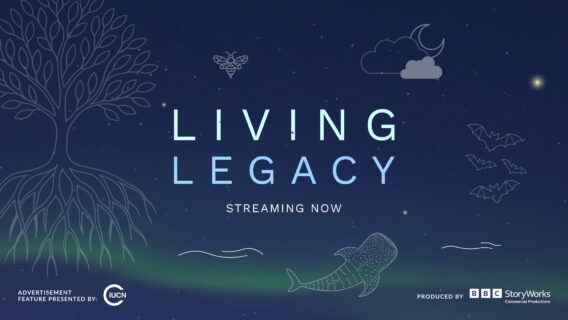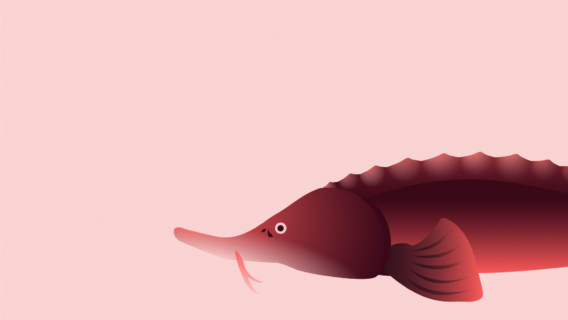SOS Lemurs will continue until 2029 thanks to 9.5 million CHF extension

During this second phase, and with continued support from the IUCN Species Survival Commission (SSC) Primate Specialist Group, IUCN will bolster the efforts of Malagasy civil society in their conservation endeavours, building upon the positive impacts of Phase I (2017-2023). By 2029, IUCN Save Our Species will have channelled a total of approximately 17.2 million CHF towards lemur conservation.
The selected projects will be aligned with IUCN Save Our Species’ three-pillar approach to conservation action. This approach encompasses the protection of both species and their habitats while also creating livelihood opportunities for the Malagasy people who rely on their local biodiversity. Furthermore, these projects will collaborate with local government and civil society organisations to enhance sustainable development outcomes, including improved nutrition and poverty alleviation.
SOS Lemurs projects will continue their collaboration with local communities, civil society networks, and local government to facilitate knowledge sharing among conservationists, influence national and international policies, enhance local capacity, and raise public awareness about the crucial need to conserve lemurs and other vulnerable species.
More information about this initiative, including calls for proposals, eligibility criteria, and project financing for SOS Lemurs Phase II, will be disclosed at a later date.
During Phase I, SOS Lemurs contributed in safeguarding 63 lemur species through 49 projects over the course of six years. Several projects reported notable increases in species populations, the restoration and improvement of forest habitats, and strengthened food availability for local communities. For more in-depth details on the impacts achieved during Phase I, browse the SOS Lemurs 2017-2023 Impact Report available in English, French and Malagasy.
The SOS Lemurs initiative actively contributes to all four long-term goals of the new Kunming-Montreal Global Biodiversity Framework (GBF). These goals encompass strategies to preserve lemur populations, ensure the sustainable use of biodiversity, and empower local communities to adopt sustainable livelihoods. The efforts of SOS Lemurs in safeguarding and restoring habitats, reducing deforestation, and promoting sustainable income-generating activities significantly contribute to the Sustainable Development Goals and the Paris Agreement on Climate Change, as well as the global objective of protecting 30% of nature by 2030 under the GBF.
Madagascar stands as one of the world’s biodiversity hotspots, housing a rich diversity of primate species. Unfortunately, according to the IUCN Red List of Threatened Species™, a staggering 90% of all 112 known lemur species are on the brink of extinction, with almost a third (31%) classified as Critically Endangered – just one step away from extinction. The primary threats to lemurs include hunting for food and the pet trade, as well as habitat destruction caused by slash-and-burn agriculture, illegal logging, and fires. These combined pressures have rendered lemurs one of the most threatened mammal groups on Earth.
Established by IUCN in 2010, IUCN Save Our Species facilitates the conservation of globally threatened species by providing grants to frontline conservation organizations with unique knowledge of their local biodiversity. In collaboration with experts from the IUCN Species Survival Commission (SSC) and relying on the latest information and recommendations, IUCN Save Our Species addresses priority issues to Keep Nature Standing.
The SOS Lemurs conservation initiative is made possible through the generous support of the Fondation Hans Wilsdorf.




